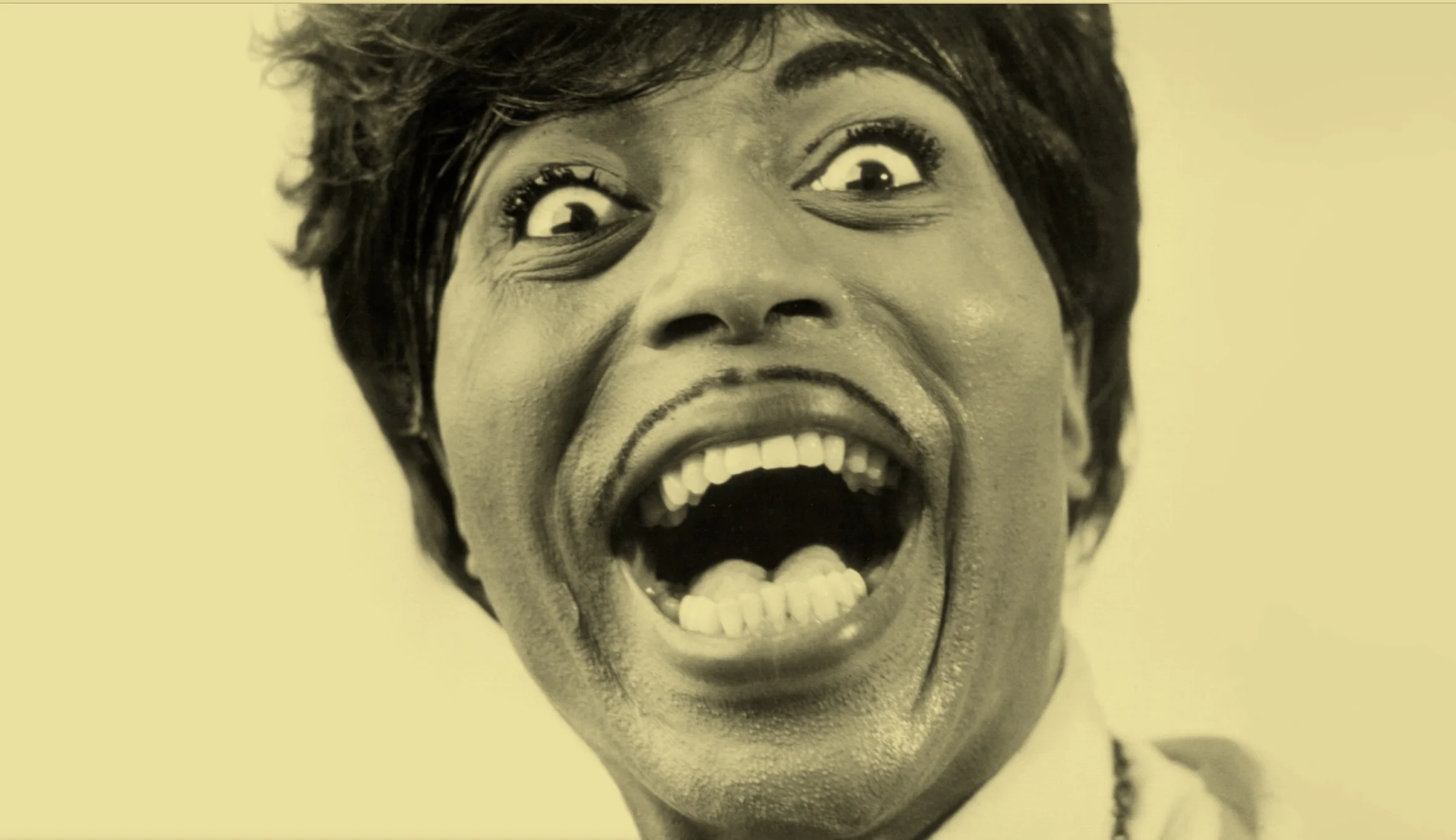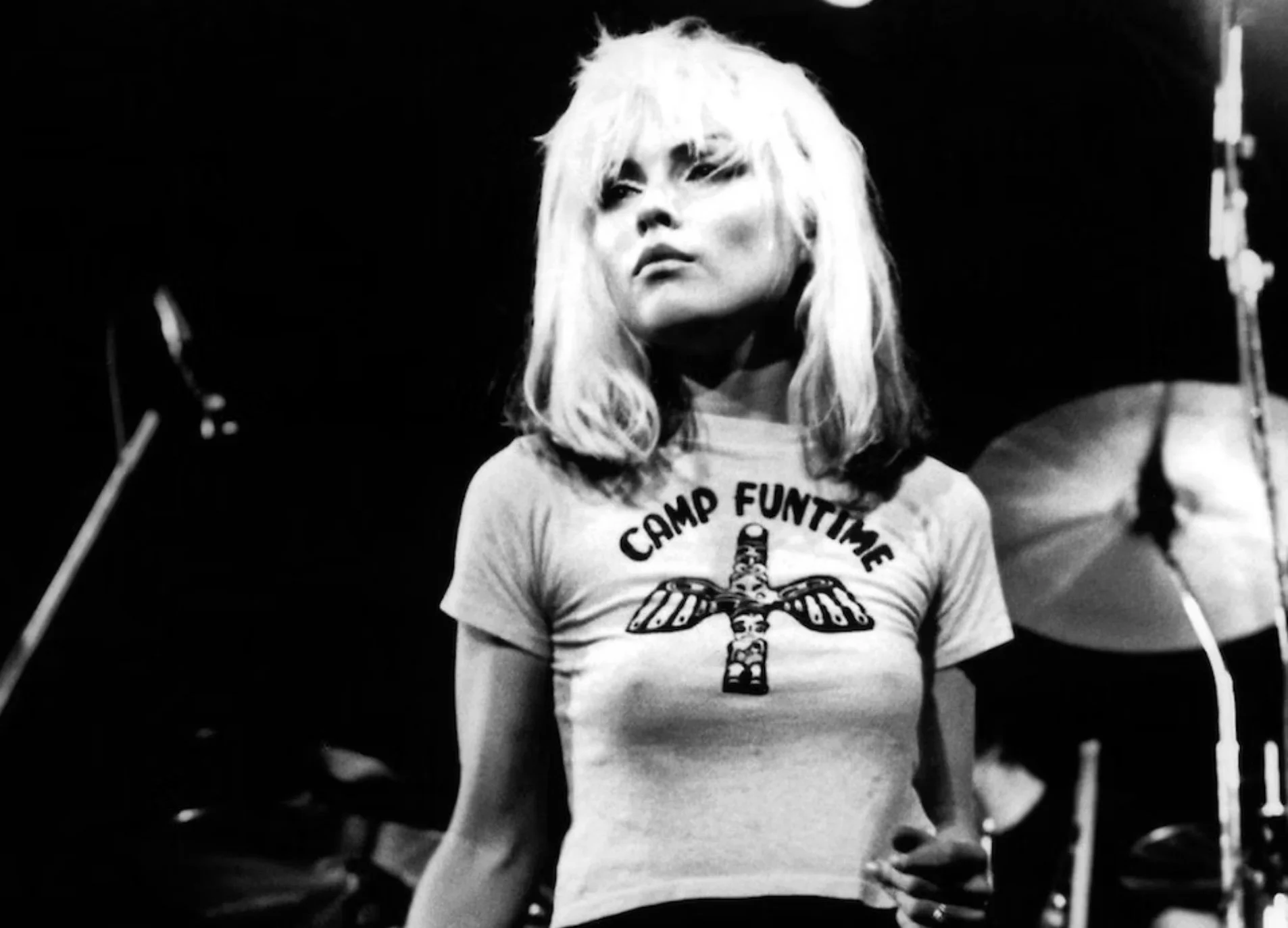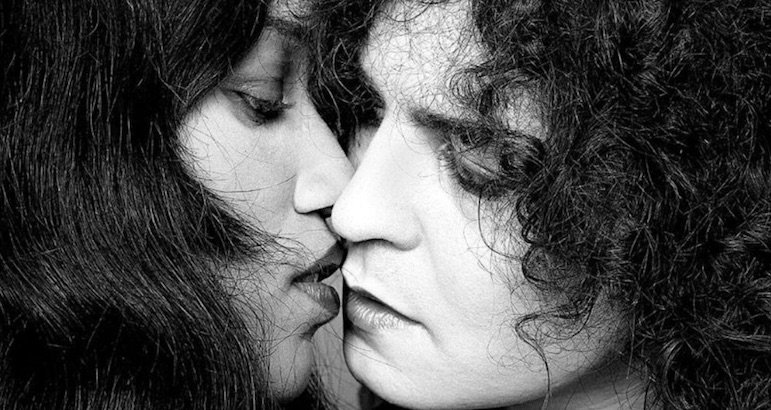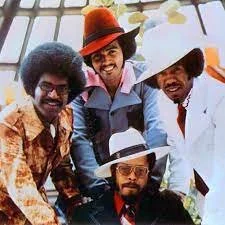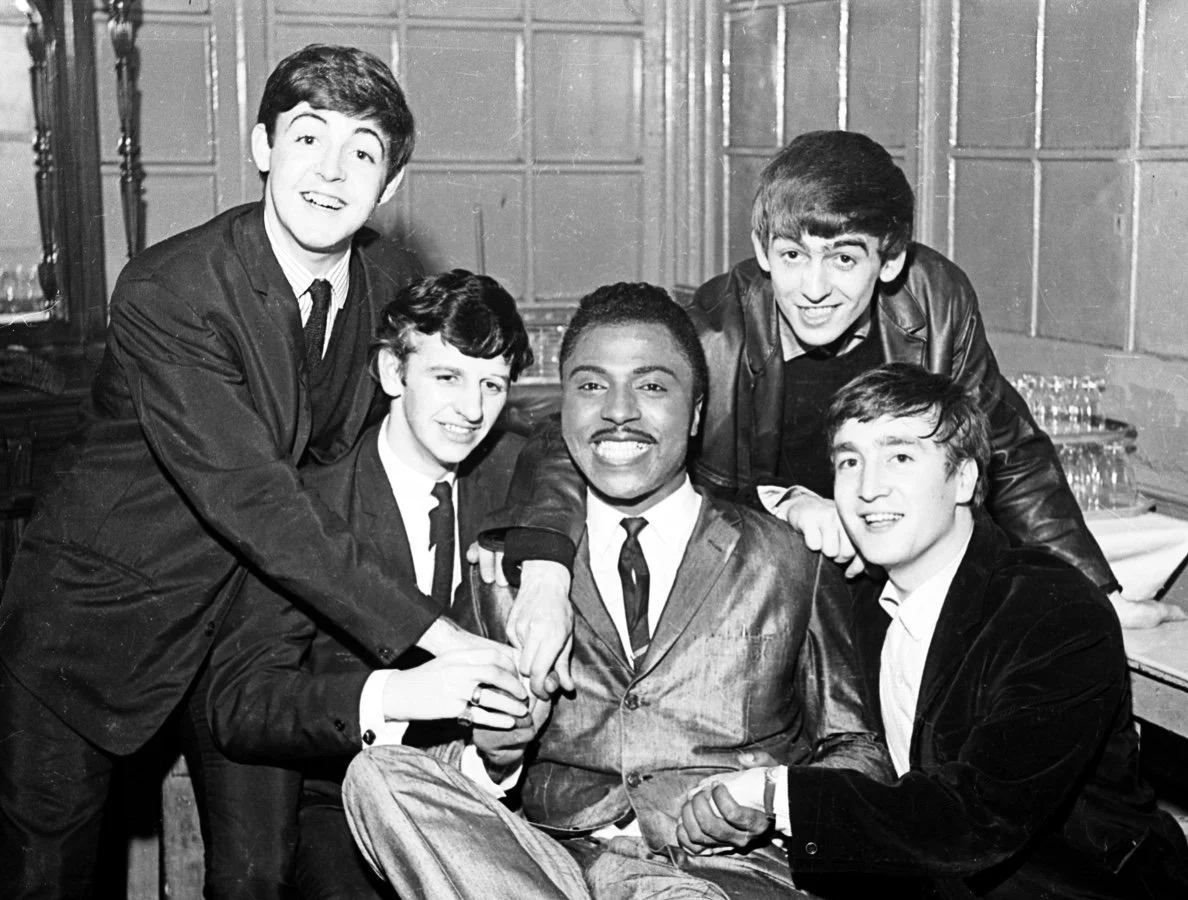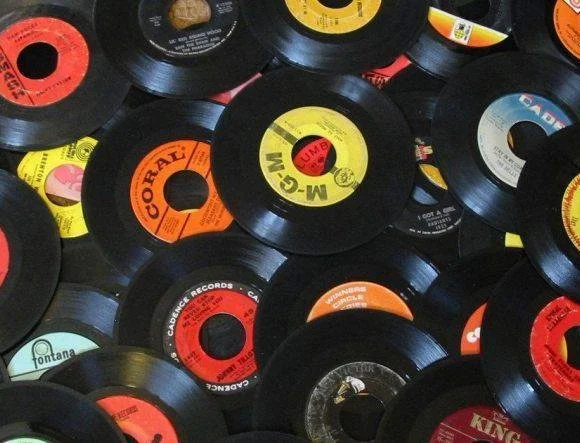By The Landlord
“When I find a cover song that I like, I'll work away at it until I kind of believe that I wrote it.” – Nick Lowe
“I started listening to and playing other music in the '90s. It was after hearing other bands, like Bad Religion, cover Ramones songs that I started to like our songs again.” - Dee Dee Ramone
“Why do they cover Paul's songs but never mine?” – Yoko Ono
"That's a rip-off of Oasis!” I recently overheard some earnest, slightly intense teenagers exclaim in a pub garden when earnestly discussing music. But they were not listening to a track by Aisis, that 2023 AI-generated project by the Hastings band Breezer, who have used a computer simulation of Liam Gallagher's voice and the Noel formula to create eight rather authentic sounding (if those are the right words), ‘forgotten’ Oasis songs in a short album titled The Lost Tapes Volume One. No, they had stumbled on 1967's With A Little Help From My Friends by the actual Beatles.
Oh, the irony. How I chuckled to myself, arrogantly, at their inexperience. Or was I in some twilight world, where time had flipped to a pre-emptive She's Electric? Even more ironically still, when Liam heard one of those new Aisis numbers, on Twitter he enthusiastically described it as “better than all the other snizzle out there”, and “mad as fuck, I sound mega!”
The AI-music era and all that it means is something we'll no doubt revisit, but meanwhile on YouTube, one commenter amusingly chipped in that Breezer "have now discovered a version of Liam that Noel can finally work with". Check it out:
But we've all done it, by which I mean heard, liked, bought, cherished or danced to a hit song, assuming it's the original, only to later discover it's a cover or some radical reworking, often by another artist. That's all part of the pleasure and pain of discovery, perhaps something we can all share and retell this week.
Perception of what makes the "original" is often shaped by our formative years, when as youngsters we first begin to discover and buy our own records. We “own it” as “the one”, but that’s part of the natural psychology of the idée fixe, where it is sometimes difficult to replace our idea of the original, something that pervades all aspects of culture, society and politics, resistant to change.
Original crush, but not always original song: Debbie Harry in Blondie
But here are some for my musical confessions. From Blondie and The Specials, Stranglers, Slits, Flying Lizards and beyond, all among several my first musical loves, crushes, and buys, there are many excellent numbers penned by them, but for some reason I assumed all of their hits were originals. Later I had to discover they had variously if stylishly covered the likes of Randy & The Rainbows, The Paragons, The Marvelettes, Prince Buster, Desmond Dekker, Rufus Thomas, Tommy Dorsey, Smokey Robinson, Barrett Strong and more, and of course the teams of brilliant 60s songwriters with and behind those artists.
I also put my hand up to admit that it took some years that I discovered how Soft Cell's cleverly crafted Tainted Love, to which I'd danced many times in the 80s, was in fact originally from Gloria Jones in 1965, written by Ed Cobb, no doubt emanating from Southport-raised Marc Almond's love of Motown and northern soul numbers of the Wigan Casino era. But somehow this discovery didn’t diminish either version.
Gloria Jones with squeeze Marc Bolan
And in the early 90s, I was convinced that Happy Monday's Step On was something completely new and different, and in many ways it was, until hearing years later in an interview with Shaun Ryder that he'd made zero royalties (though still had a lot of fun) from that record, after which I uncovered John Kongos' He's Gonna Step On You Again (1971).
Then in the 2000s, on the sampling front, where original songs are used so prominently in later hits that they could even count as part of this topic, I even felt a little shocked at how much Daft Punk's Harder, Better, Faster, Stronger owes to Edwin Birdsong's Cola Bottle Baby, or indeed the debt to the Chi-Lites' Are You My Woman in Beyoncé's Crazy In Love.
The Chi-Lites
So that's this week's topic. What about you? Let's uncover the striking, interesting originals, whether they be subjectively better or not, and perhaps whether or not you’ve always known about them or if they are recently new to you. And by reworking, that could even mean first version of a song, or even a released demo, that might have been completely revamped, remixed, given a new backing track, or even so prominently uses a sample from another original song that it's almost a cover version.
There have been parallel topics before of course, here and in previous incarnations, from the polar opposite covers better than originals, unlikely cover versions, covers by the opposite sex, and sampling and recycling, but this time, we're all about those first and original versions.
Perception of originals are all always subject to time, culture, media and era. Here’s four great originals drawn to their great hero, the man who took them to Berlin to learn their craft.
Not so Little after all. The Fab Four look up to big hero Richard in 1962
This week I saw a preview of new documentary about the great and arguably true architect and king of rock’n'roll – Little Richard: I Am Everything. It includes a quote from great man, who, despite his success, struggled for years for full recognition of his influence, describing, with some disdain, how Elvis and Pat Boone sold more versions of Tutti Frutti than he did in the mid 1950s. For millions of white record buyers in America and beyond, the only version they knew was by Elvis or Boone. Of course the original lyrics explicitly included a description of homosexual intercourse: “Tutti Frutti, good booty / If it's tight, it's all right /And if it's greasy, it makes it easy!” It was sanitised and revised into the bland and non-sensical "Tutti Frutti, aw rooty", meaning "alrighty". On the trailer for the film, you can see a clip of Pat Boone, looking a little embarrassed, singing his somewhat rubbish version.
No doubt many black artists will come up in this week’s suggestions, their origins the backbone of so much pop. Cover versions are however how almost every artist has learned to hone their own skills and style before writing their own songs. To discuss this more, here are other guests in the Bar, eager explain. Here's Roxy Music's Bryan Ferry: “I find it quite interesting to do covers from time to time. My first solo hit was in 1973, the Bob Dylan song A Hard Rain's Gonna Fall.”
Bob Dylan is one of the most covered artists of all time, with Jimi Hendrix's version of All Along The Watchtower arguably the best version, but Dylan began his career recording lots of covers. John Mellencamp is the Bar too, and reckons that “Dylan's first couple of records in the 60s weren't considered cover records, but he only wrote one or two original songs on each album.”
There are many artists who admit freely that covers are their food and drink. “Cover versions, that's my forte, that's all I ever used to do. When you play your own songs, it's quite scary, 'cause I'm quite honest and open, they can be very revealing. But covers, I don't have to think about, just get me up there!” says Ellie Goulding.
Barry Manilow meanwhile, tinkering at our piano, is shamelessly proud about his commercial covers releases. “I've been having a wonderful run of luck with cover albums, songs I didn't write. I had five pop cover albums and two Christmas albums, and they were all very successful.”
And for the current generation, Texan YouTube star and pop singer-songwriter Austin Mahone reveals his method: “I would go on the iTunes chart and see the hottest songs, then I'd cover them. People would go on YouTube and search for those songs. That's how I got my views. I'd post two or three songs a week.”
Mixing up the eras, Patti Smith argues for full freedom to cover whatever inspires you, and “if your label won't let you have the cover you want or sing the songs you want, then leave!”
Portland's prolific singer-songwriter M. Ward meanwhile takes a more nuanced perspective on the cover version choice and and style in which to do it: "I wouldn't want to cover a Hank Williams song in a country-western way. It doesn't occur to me instinctually to re-create productions. I'm interested in re-creating songs. Putting different clothes on them.”
So we're all affected by subjectivity, by time, experience and perspectives, and whether you consider yourself an old sage or a sponge-like discovering enthusiast, young or of any age, all of us have always got more to discover, which is what this Bar is all about. So it's time for some root notes, not so much of the tonic scale, but uncovering original song versions. Who is curating this week's suggestions? I'm delighted to welcome back behind the virtual pumps, the brilliant barbryn! Place you suggestions in comments below for deadline on Monday 11pm UK time for playlists published next week.
So where will your journey go? Might you unearth, for example, Curtiss Maldoon, Gwen McCrae, Lori Lieberman, Sonny Dae, The McCoys, The Nerves, or even many better known artists whose originals aren’t the best known versions? It’s time for me to stop tip-toeing and leave it up to you, learned music lovers. This is going to be a week for treasure digging, and for those who want to use them, here are a couple of handy links to with tools of great discovery, prisms through which artists, songs and sources can be eternally explored and uncovered.
New to comment? It is quick and easy. You just need to login to Disqus once. All is explained in About/FAQs ...
Fancy a turn behind the pumps at The Song Bar? Care to choose a playlist from songs nominated and write something about it? Then feel free to contact The Song Bar here, or try the usual email address. Also please follow us social media: Song Bar Twitter, Song Bar Facebook. Song Bar YouTube, and Song Bar Instagram. Please subscribe, follow and share.
Song Bar is non-profit and is simply about sharing great music. We don’t do clickbait or advertisements. Please make any donation to help keep the Bar running:

